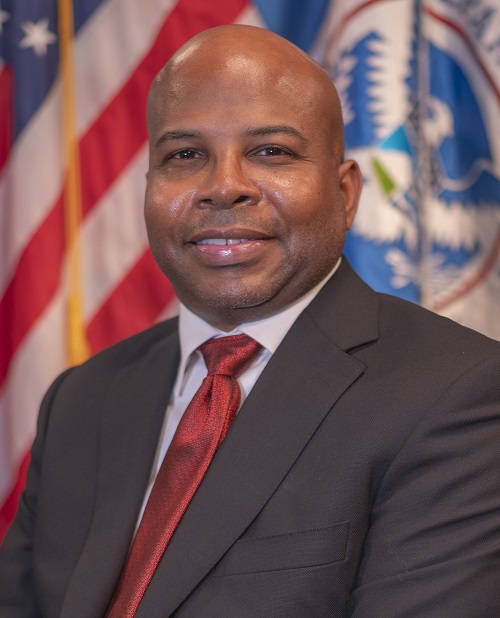Each year on Dec. 3, the United Nations leads a global effort to promote an understanding of disability issues and mobilize support for the dignity, rights and well-being of persons with disabilities. The International Day of Persons with Disabilities (IDPWD) is a good opportunity to take a closer look at the work being done by FEMA's Office of Disability Integration and Coordination (ODIC).
People with disabilities are disproportionately affected by natural disasters, and FEMA's people-first approach mandates that we are consistently identifying ways to provide all survivors with resources they can access in ways that meet them where they are. ODIC serves as a cornerstone of our agency's commitment to equity, building and expanding on our efforts to serve people with disabilities in disaster preparedness, response, and recovery.

In his first 100 days as the new ODIC Director, Sherman Gillums, Jr. engaged stakeholders, worked to transform ODIC's operational approach and launched a number of initiatives that will inform an ambitious vision to measurably shorten the disaster lifecycle for people with disabilities.
Below are just a few of ODIC’s accomplishments during Gillums’s first 100 days in office.
Created More Resources for Disaster Survivors
- We worked to better equip our FEMA Disability Integration teams. These teams travel to disaster-impacted areas to help make sure that all survivors receive access. Director Gillums spearheaded efforts to implement a tool that help these teams use relevant data and information from multiple agencies to focus resources and outreach where it's needed for people with disabilities during preparedness, response and recovery.
- We made sure people were prepared, based on their needs. During Hurricane Ian, we released more guidelines for How People with Disabilities and Medical Needs can take Action Before and After a Hurricane.
Led Efforts to Exchange Information
- We launched a new preparedness PSA for people with disabilities during National Preparedness Month.
- We presented on inclusive emergency management to graduate students at Gallaudet University.
- We engaged with national-level disability stakeholders to improve the FEMA registration process during disasters.
- We presented at the annual International Association of Emergency Managers conference.
- We convened with FEMA's Regional Disability Integration Specialists at D.C. headquarters to plan multilevel efforts around disability integration during steady state and disaster response with an emphasis on equity.
Assessed Current Practices
- We traveled to Puerto Rico and Florida to assess recovery operations for people with disabilities in areas impacted by hurricanes Fiona and Ian.
- We took a closer look at how we work with stakeholders at partner organization such as the American Red Cross, National Council on Disability and Administration on Community Living.
- We toured the National Emergency Training Center in Emmitsburg, MD to advise on structural accessibility and collaborated on future disability-related training opportunities.
- We engaged with public-private partners at FEMA's 2022 Civil Rights Summit to improve our current practices.
- We participated in panel discussions, such as annual conference of the Association of University Centers on Disabilities.
Director Gillums is looking forward to the next 100 days of increasing equity efforts in the work we do before, during and after disasters.


